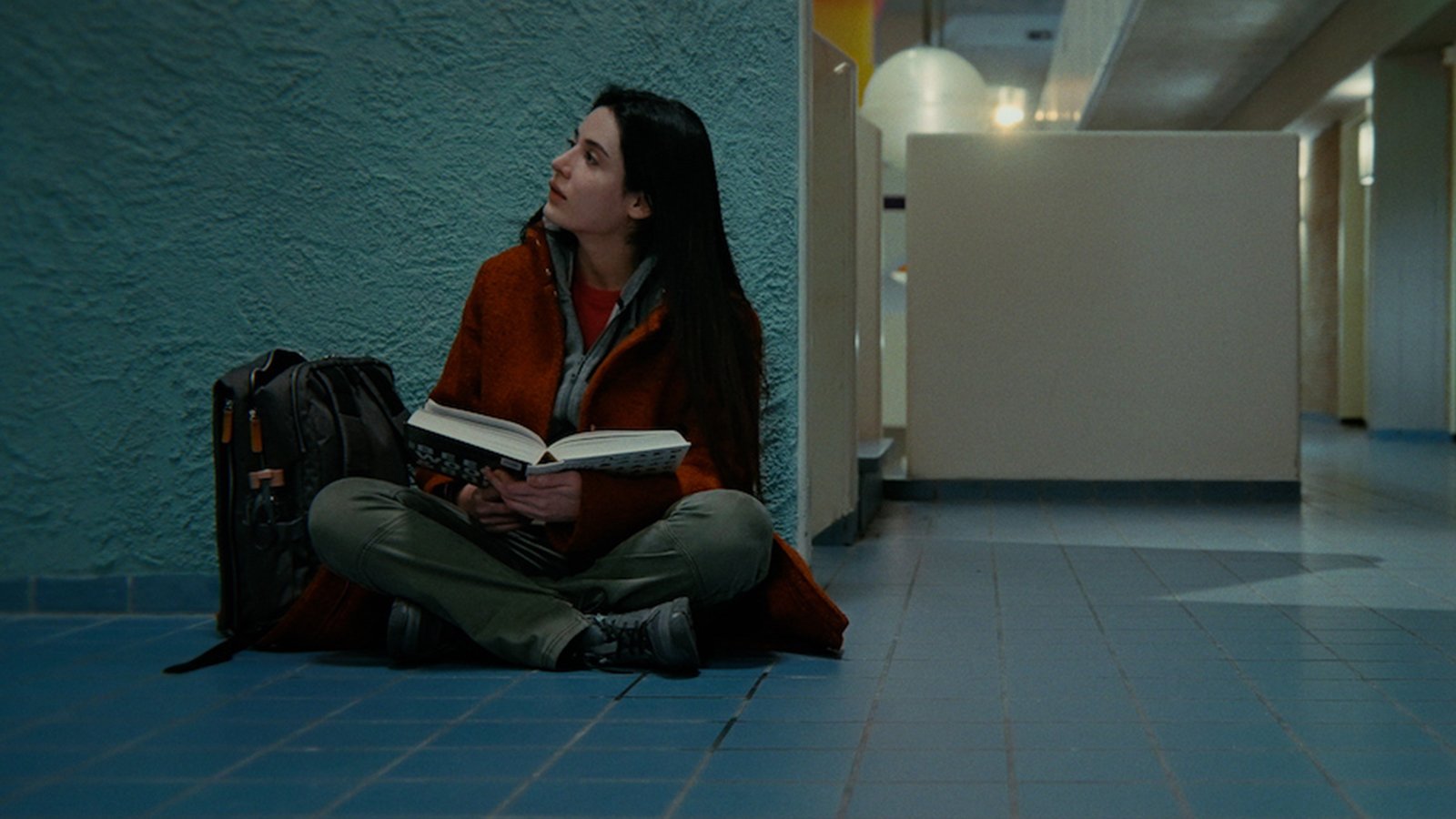This Afternoon screens at the Sydney Film Festival on June 10 and 11.
Dutch/Iranian director Nafiss Nia’s debut feature That Afternoon is an intimate two-hander about Iranian refugees Roya (Hoda Niku) and Nassim (Alin Whiska) residing in The Netherlands whose lives intersect at a time of extreme crisis for them both. It is primarily shot on one location and although there is a scattering of other characters the film concentrates on its two protagonists. Small in scale, but wide in social commentary, That Afternoon speaks of the refugee experience and the racism that many refugees face when trying to build a stable life, or simply exist.
That Afternoon begins with a close-up shot on Roya’s face as she’s told she has time to pack a bag. She’s about to be deported back to Iran. The next shot has her running to Nassim’s apartment. Nassim is known in the refugee community as someone who can help people facing deportation. Once Roya reaches Nassim’s apartment she frantically buzzes the doorbell. Inside is a man slowly packing up his belongings and writing letters. He ignores the buzzing. When he eventually looks at the video doorbell, he sees the desperate young woman, a scene he has witnessed many times before, but tells her that Nassim is not at home and he can’t open the door because Nassim has locked him in. With nowhere else to go as police and authorities are searching for Roya at her temporary residence, the young woman decides to wait in the foyer. When Nassim ‘returns’ she might have a chance of staying in The Netherlands.
There is a particularly staged aspect to Nia’s film. The simple set up means that it is mostly dialogue driven although there are some interesting visuals – especially of note are the photographs in Nassim’s apartment. There are moments which seem almost like magical realism which are in stark contrast to the setting. Roya’s mind wanders back to Iran and the sense memory of life there. Marjan Farsad’s ‘Khooneye Ma’ plays through one of the neighbour’s doors. The song is about the beauty of Iran, a land that Roya cannot return to. A land where her return would mean her death.
Despite his cynicism and depression Nassim (who eventually allows that he is Nassim) is drawn to the young woman. He won’t open the door and let her in, but he converses with her. Roya believes she deserves a better life, “Everyone is looking for happiness,” she says and that is no crime. For Nassim there is no happiness to be found as a refugee. Even though he has his citizenship papers which he had to wait for seven years to be granted, he has faced daily racism. Opportunities have been denied to him on the basis of his background. An incident occurred that has left him bereft and swallowed up by guilt. That afternoon, Nassim has decided will be his last.
A key text that Nia employs is the poem ‘Bright Horizon’ by Iranian poet Ahmad Shamlu; “One day we will find our doves,” it begins, and the lines “That day – house doors will not be shut, Locks will be but legends” are words Roya and Nassim know by heart. If Nassim can open the door that is between himself and Roya perhaps both of them can be saved. The lock is literal and clearly metaphorical. Nassim’s trauma has caused him to retreat from the world. To destroy his photographs and repel any new relationships. Roya is hopeful, she’s resilient, and she believes she can find happiness in a new home if given the opportunity to stay. She carefully studies Dutch. She laughs at the language and its oddities compared to Persian. She particularly points out that the Dutch world for death, “dood,” is so short for something that is so big. She too has faced trauma but will not let it stop her living.
Nia’s work somewhat telegraphs what will happen, but despite the predictability there is a wealth of emotionality and a truth to what refugees face even in seemingly progressive countries like The Netherlands. Both Hoda Niku and Alin Whiska give embodied performances which bring both Roya’s and Nassim’s perspectives to the viewer in a manner that is unforced.
Nafiss Nia’s intimacy with the subject matter is clear. Being an Iranian living in The Netherlands she is well placed to point out the overt and subtle hypocrisy of the government and their policy regarding refugees. A sign appears in one scene that says “Hello or Welcome” in a variety of languages. The truth is that certain people aren’t truly welcome, and they must give up so much of themselves to assimilate into a white European culture, and even when they do that they are still judged as being “less than.”
That Afternoon is richly textured with symbolism (once you realise what the photographs on Nassim’s wall are it changes your perspective of the character), but also grounded in realism. When Nia decides to take the audience out of the realism it can be a little jolting, but the film is about the psychology of the two people divided by a door but united in their backgrounds. That Afternoon might be a bit predictable and at times melodramatic, but it is a substantial film that makes you invest in Roya and Nassim and asks you to imagine what life is like if you are never really “home.”
Director: Nafiss Nia
Cast: Hoda Niku, Alin Wishka
Writer: Nafiss Nia



